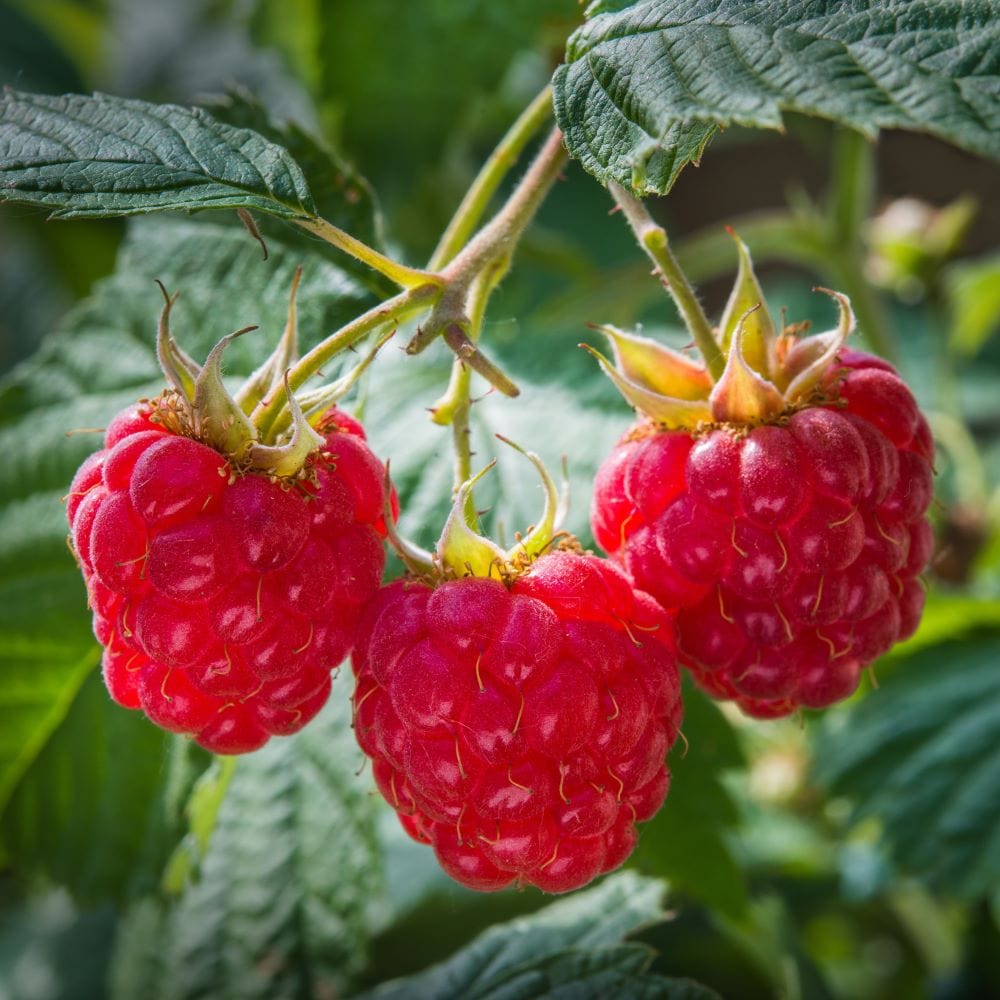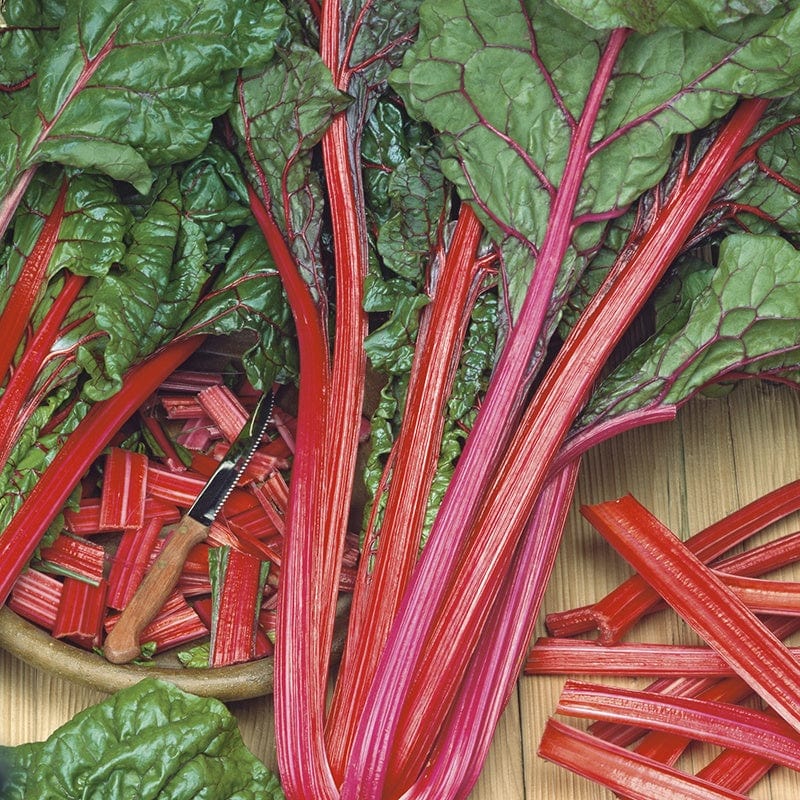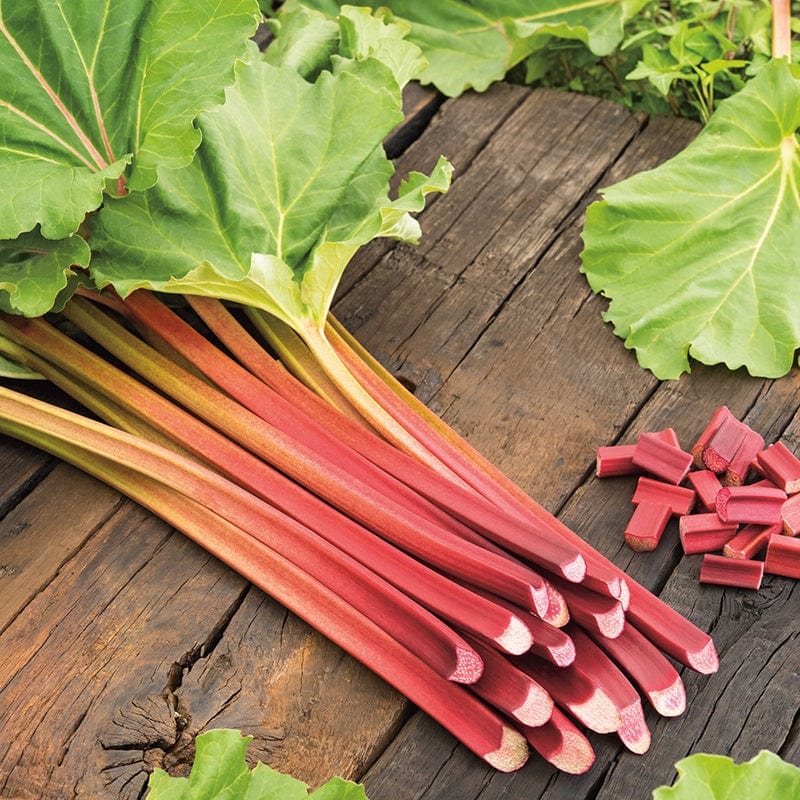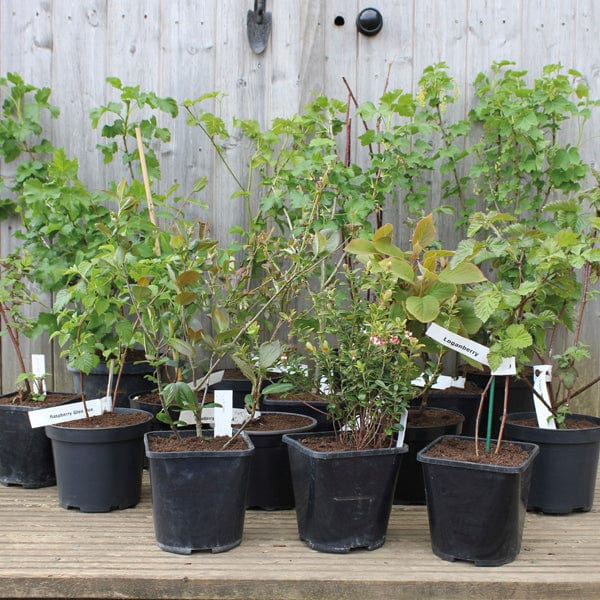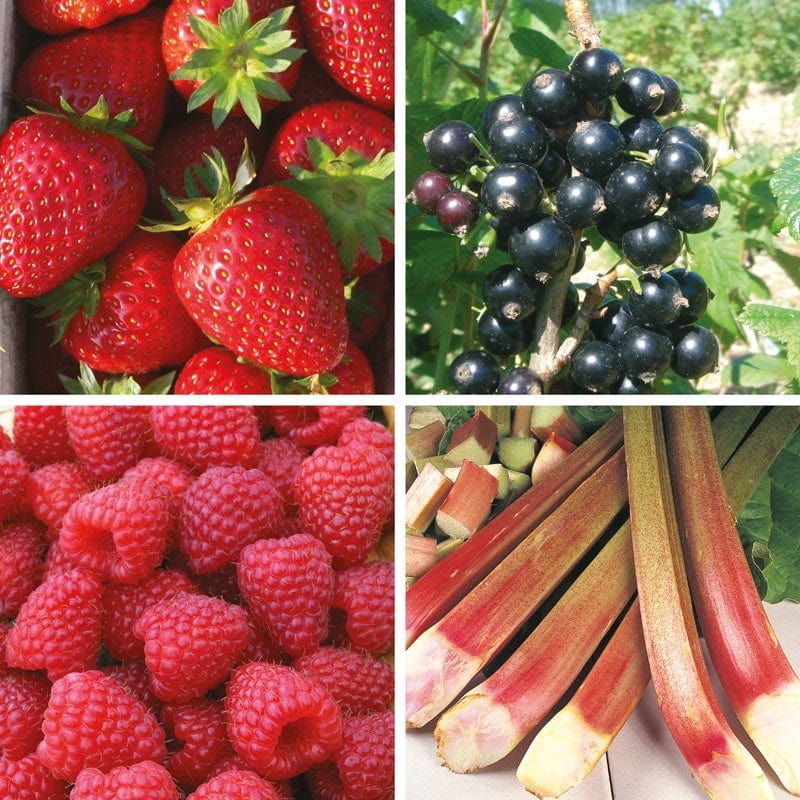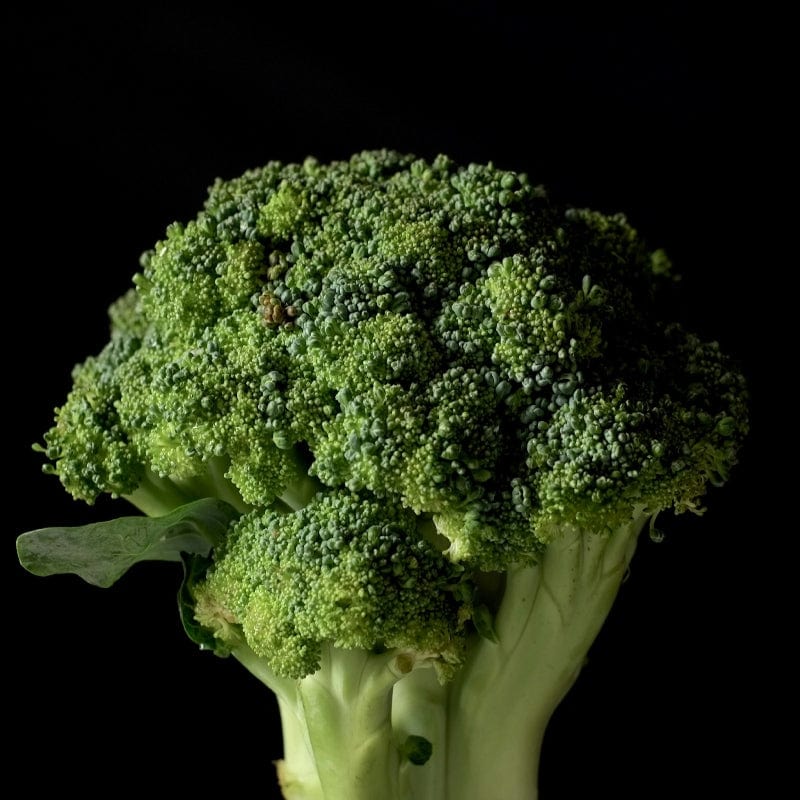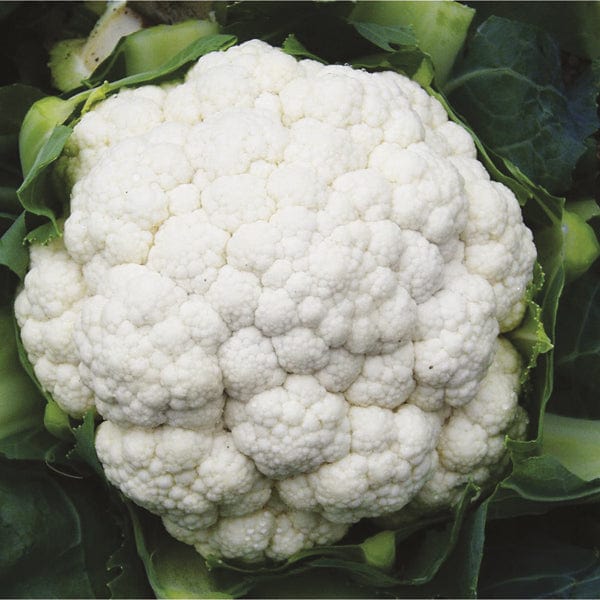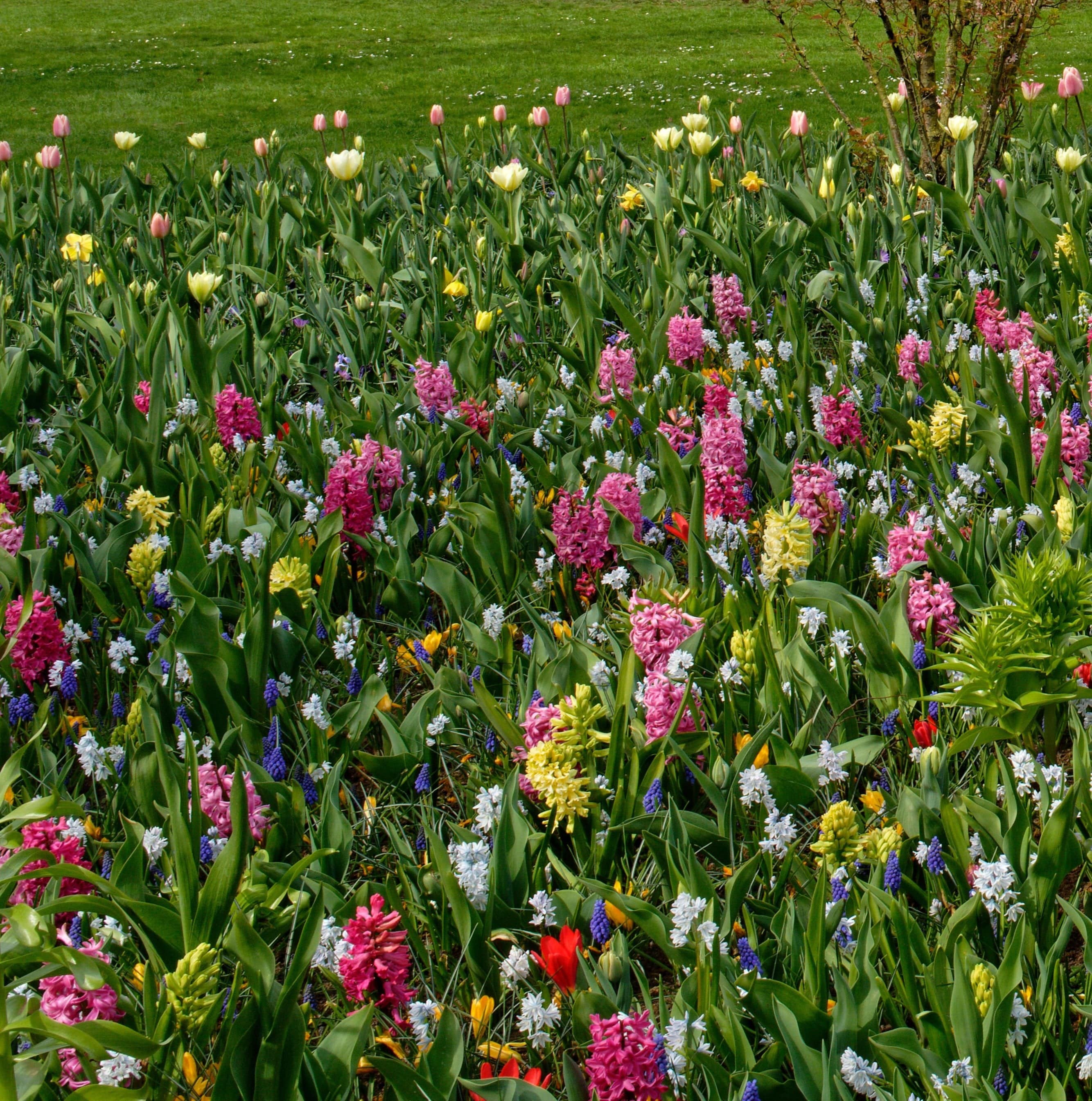January may not often be thought of by gardeners as prime time for growing, but there are in fact many options to get started on producing delicious fruit crops at the start of the year. Despite the month’s cold weather, there are many cold-hardy plants that can tolerate the colder climate, and growing these will reward you with an earlier harvest. To get started on your winter fruit growing, we’ve put together our most helpful tips on the best fruits to plant in January below.
What Are the Fruits that Grow in January?
There are many fruit plants and fruit trees that can be grown in January, despite the weather not presenting ideal conditions for growing many other fruits. You can get started by growing plants that are tolerant to cold temperatures or by growing plants under protection in the form of a greenhouse or cold frame.
The best fruits and fruit trees to plant in January include:
- Strawberries
- Rhubarb
- Soft fruit plants
- Bare root fruit trees
Strawberries
While the prime time for growing strawberry seeds and strawberry plants is generally spring or autumn, you can get started on growing them as early as January.
Strawberries can be grown in pots under the protection of a greenhouse or cold frame, or can be grown in garden cloches if planted directly in the ground. Starting your strawberries during this time will allow you to enjoy an earlier summertime crop.
Grow them in slightly acidic soil containing garden compost or well-rotted manure and ensure regular watering. You will need to pollinate the plants’ flowers by hand if growing indoors, which can be done with a soft paintbrush. If growing outdoors, take off the cloches while your plants are in flower during the day to allow insects to pollinate.
Our guide on how to grow strawberries offers plenty more advice if you would like any further details on growing them.
Rhubarb
Rhubarb is a very hardy plant, making it a popular choice for many due to its easy growth. Rhubarb is often planted between autumn and spring, generally being planted in the colder months as long as soil isn’t waterlogged or frozen.
While rhubarb can be grown from seed, this can be more difficult and take several years to produce stalks that can vary drastically in quality. Instead, Rhubarb plants are typically the preferable option for many growers.
During January, strong rhubarb plants can be forced, meaning they can be tricked into producing stalks earlier than their usual growing season. This allows for stalks that grow very quickly for an early spring harvest and have a particularly sweet flavour.
This is done by covering them with a forcing jar or similar large container, such as a bin or large pot, and adding straw around the outside for insulation. You should check your rhubarb regularly as your plants will grow very quickly. They will generally be ready after eight weeks of growth. However, you should avoid forcing the same plants again for at least two years as it weakens crowns.
If you’d like to know more about growing rhubarb, our guide on how to grow rhubarb contains much more information.
Soft fruit plants
Soft fruit plants are the most capable of fruits that grow in January. For example, you can get started on growing raspberry canes, currant bushes and blueberry plants during this time. The great thing about soft fruit plants is that they come in a variety of sizes, so choosing a dwarf plant is ideal if you’re limited on space.
These are best planted in winter, as this is when their roots are dormant, which makes it easier for them to establish. They should be planted in a sunny, sheltered spot in soil that’s ideally slightly acidic. Be sure to add garden compost or well-rotted manure to the soil to provide them with the nutrients they need. You should also provide a good amount of space between the plants for good air circulation, as they can be at risk of fungal diseases.
To learn more about growing raspberry canes, you can read our guide on how to grow raspberries for expert advice on the topic.
Bare-Root Fruit Trees
Bare-root fruit trees are one of the best choices when choosing fruits that grow in January. Fruit trees to plant in January include choices such as pear, apple, cherry and plum trees. By getting started now, you’ll reap the benefits of growing ripe, delicious fruits come summertime. Just be sure to plant them when the soil isn’t waterlogged or frozen and in a spot that will receive full sun, watering regularly during their growing season.
Like soft fruit plants, fruit trees come in a variety of sizes, meaning that they can be grown in many different-sized growing spaces. So, if you require an option for a smaller space, choosing from our patio fruit trees will mean that you can find a more suitably sized tree.
Related Products
Shop Fruits that Grow in January at D.T. Brown
We hope our guide on fruits to plant in January has given you plenty of ideas to get your garden off to a great start in the new year. If you’re looking to order your preferred fruit plants and fruit trees for January planting, our diverse selection at D.T. Brown provides a wealth of options. With over a century of experience in providing gardeners with quality seeds and plants, you can rely on our choices to grow healthily and produce fantastic flavours.
If you’d like to read more expert guides on how to grow many more fruits and vegetables to enrich your home cooking, our many growing guides and useful blogs on our garden blog contain much more useful advice.
To find out anything more about our selection of vegetable plants, vegetable seeds, herb plants, or anything else in our range, don’t hesitate to get in touch. A member of our team will gladly answer any questions you may have.








